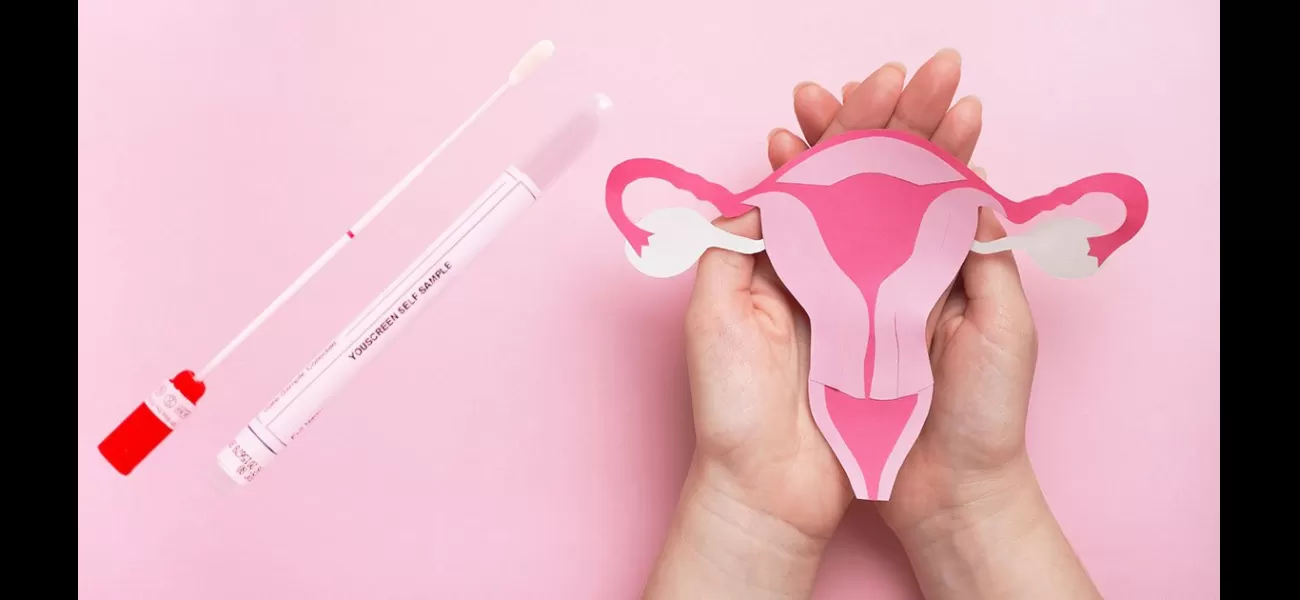Hundreds of thousands of additional women may have access to cervical screening annually in the near future.
Many women are deterred by the speculum, medical setting, or undressing in front of a stranger despite attempts to improve the experience.
July 17th 2024.

A groundbreaking new DIY test is making headlines for its potential to revolutionize the way we approach cervical cancer screenings. For many women, a trip to the doctor for a cervical screening is not exactly something they look forward to – despite the fact that it can be a life-saving procedure. Whether it's the uncomfortable speculum, the clinical environment, or the thought of having to undress in front of a stranger, there are many factors that can deter women from getting this important test. But now, a new test is being hailed as a "game changer" that could make the entire process much simpler and more accessible.
The National Health Service (NHS) is currently looking into implementing this new test across England. A recent trial conducted by King's College London showed promising results, with a significant increase in the number of women who underwent screening – particularly those who had previously not taken up the offer. In fact, researchers estimate that if this test were to be used more widely, an additional one million patients could be screened every three years in England, or 400,000 more each year.
So, what exactly is this new test? It's a DIY swab that can be done at home, eliminating the need for a doctor's visit. This method proved successful in the YouScreen trial, the largest study of its kind, which involved over 17,000 participants. Women were able to take the sample themselves using a long cotton bud, either at home or at their GP practice. For those who chose to do it at home, the sample could be easily posted to a laboratory for analysis.
With the ongoing COVID-19 pandemic, we have all become familiar with the concept of self-testing using swabs. So, for many, this new cervical screening test would just be a matter of doing the same thing in a different location. In fact, other countries such as the Netherlands, Australia, Denmark, and Sweden have already introduced similar self-testing kits.
Dr. Anita Lim, the lead investigator of the YouScreen trial, expressed her excitement about the potential impact of this test. "Currently, a third of eligible women aren't getting screened regularly, and in some parts of London, this number rises to 50%," she said. "But it's really encouraging that we received self-samples from groups that have historically been underserved, including people from deprived and ethnic minority backgrounds, LGBTQI+ individuals, those with learning disabilities, and victims of sexual violence."
The results of the trial, which were published in the journal eClinicalMedicine, showed that 13% of the kits that were sent directly to participants through the mail were returned. Additionally, when offered the test during a visit to their GP, 85% of women accepted and 6,061 returned a self-sample either by post or at the surgery. Half of those who returned a self-sample were overdue for screening by at least two years, and a large proportion were from ethnic minority and deprived populations.
By routinely implementing this self-testing kit in England, the researchers estimate that screening coverage could increase from 69.9% to 77.3%. This is especially important for women born before 1990, who were not eligible for the HPV jab that has significantly reduced cervical cancer rates in recent years. The NHS currently invites eligible individuals for screening every three to five years, or more frequently if HPV is detected.
The NHS will now work with the UK National Screening Committee to determine the feasibility of rolling out this test more widely across England. In the meantime, the NHS urges all those who receive an invitation for cervical screening to accept it, emphasizing that it is still vital for detecting and preventing cervical cancer.
The National Health Service (NHS) is currently looking into implementing this new test across England. A recent trial conducted by King's College London showed promising results, with a significant increase in the number of women who underwent screening – particularly those who had previously not taken up the offer. In fact, researchers estimate that if this test were to be used more widely, an additional one million patients could be screened every three years in England, or 400,000 more each year.
So, what exactly is this new test? It's a DIY swab that can be done at home, eliminating the need for a doctor's visit. This method proved successful in the YouScreen trial, the largest study of its kind, which involved over 17,000 participants. Women were able to take the sample themselves using a long cotton bud, either at home or at their GP practice. For those who chose to do it at home, the sample could be easily posted to a laboratory for analysis.
With the ongoing COVID-19 pandemic, we have all become familiar with the concept of self-testing using swabs. So, for many, this new cervical screening test would just be a matter of doing the same thing in a different location. In fact, other countries such as the Netherlands, Australia, Denmark, and Sweden have already introduced similar self-testing kits.
Dr. Anita Lim, the lead investigator of the YouScreen trial, expressed her excitement about the potential impact of this test. "Currently, a third of eligible women aren't getting screened regularly, and in some parts of London, this number rises to 50%," she said. "But it's really encouraging that we received self-samples from groups that have historically been underserved, including people from deprived and ethnic minority backgrounds, LGBTQI+ individuals, those with learning disabilities, and victims of sexual violence."
The results of the trial, which were published in the journal eClinicalMedicine, showed that 13% of the kits that were sent directly to participants through the mail were returned. Additionally, when offered the test during a visit to their GP, 85% of women accepted and 6,061 returned a self-sample either by post or at the surgery. Half of those who returned a self-sample were overdue for screening by at least two years, and a large proportion were from ethnic minority and deprived populations.
By routinely implementing this self-testing kit in England, the researchers estimate that screening coverage could increase from 69.9% to 77.3%. This is especially important for women born before 1990, who were not eligible for the HPV jab that has significantly reduced cervical cancer rates in recent years. The NHS currently invites eligible individuals for screening every three to five years, or more frequently if HPV is detected.
The NHS will now work with the UK National Screening Committee to determine the feasibility of rolling out this test more widely across England. In the meantime, the NHS urges all those who receive an invitation for cervical screening to accept it, emphasizing that it is still vital for detecting and preventing cervical cancer.
[This article has been trending online recently and has been generated with AI. Your feed is customized.]
[Generative AI is experimental.]
0
0
Submit Comment





